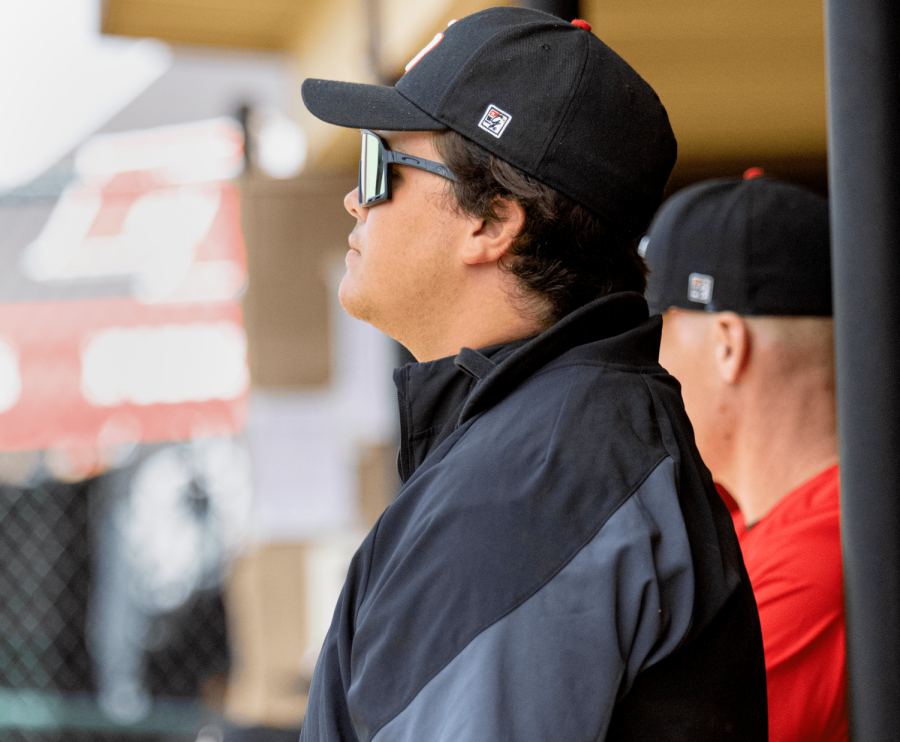Argument
Ever noticed how egotistical some professors can be? How they use their power to intimidate you or hold a grade over you to make you bend to their will? How they talk to you (in person, and especially on e-mail) in a degrading way? Well, I have, and it’s not right.
I have been told before, “They earned a Ph.D., so they have the right to teach however they want, grade however they want and treat you however they want.” Really? Or have we just accepted mistreatment and abuse from professors over the years because we mistakenly believe the myth that dealing with professor’s misconduct is part of the price we pay to earn our degrees? Many accept this “tradition.” Well, I, for one, reject it.
Our university has a Student Code of Conduct policy but nothing like it for faculty. So what recourse, as students, do we have? If a professor discriminates against you or harasses you based on a protected category such as: age, ancestry, citizenship, color, disability, gender, immigration status, marital status, national origin, race, religion, sexual orientation, or veteran’s status (and you can prove this) then you can file a complaint with the school’s Equal Opportunity office. If you are being sexually harassed you can report that. You can file a petition to have your case reviewed by the Fairness Committee (although this is an arduous process that many of us would not have the time nor patience to go through). But what if the professor is grading the whole class unfairly, not just you? What if he is offending, annoying, intimidating, and/or threatening you and causing a hostile learning environment?
The school says to take it up with the Department Chair of your individual department. As someone who has complained about a professor before, I can attest that this is often futile. The Department Chair seems to refer you back to the professor to try to “work it out.” They want the problem to go away on its own. Often, they defend the professor, not you. Sometimes they will want you to meet with the professor and offer to come with you as a witness and/or mediator, if you’re lucky. If this does not work you are told to go to the Dean. I have been to the Dean before, and I can tell you that was also a waste of time. I even had a petition of students in my class who shared the same concerns about the professor. What was I told? As long as the professor is treating the entire class the same way then it is not deemed to be unfair treatment, since one person was not being “singled out.”
I came to learn that there is something called “Academic Freedom” which allows for professors to not only teach what they want and how they want to, but assign grades however they want to. In my case, the professor had unreasonable and ridiculous standards for grading our essays—expecting us to write essays that contained particular information (even quotes that he deemed important) and marking us down every time we did not include specific information. Over half the class received F’s even after he curved the grades!
In 1940, representatives of the American Association of University Professors and of the Association of American Colleges (now the Association of American Colleges and Universities) agreed to a statement known as the 1940 Statement of Principles on Academic Freedom and Tenure. Part of it states: Professors should “speak or write as citizens, they should be free from institutional censorship or discipline, but their special position in the community imposes special obligations. As scholars and educational officers, they should remember that the public may judge their profession and their institution by their utterances. Hence, they should at all times be accurate, should exercise appropriate restraint, should show respect for the opinions of others, and should make every effort to indicate that they are not speaking for the institution.” One would think this means that professors ought to think carefully about what they say and how they treat students but apparently this is not always the case.
There is also a Statement on Professional Ethics adopted in 1966 which speaks to the responsibilities of professors. Part of the statement says that professors “accept the obligation to exercise critical self-discipline and judgment in using, extending, and transmitting knowledge.” Furthermore, it goes on to state that professors should, “demonstrate respect for students as individuals and adhere to their proper roles as intellectual guides and counselors. Professors make every reasonable effort to foster honest academic conduct and to ensure that their evaluations of students reflect each student’s true merit. They respect the confidential nature of the relationship between professor and student. They avoid any exploitation, harassment, or discriminatory treatment of students.” This statement dictates the ideal but what is the reality? What happens when a professor abuses his power and does not respect their student? Often times, nothing. That student learns to deal with it, drops the class, drops out of college, and/or moves on with life. This is process can be very damaging. We should expect more from professors.
If professors have an ethical duty to treat students with respect why is it they get away with mistreating them? Why is it that a professor can grade any way he likes, even if it meets no reasonable standard? Why is it that a professor can be a dictator in the classroom instead of a collaborator, a mentor, a supporter, and an encourager? Why is it that unless a professor is discriminating against and/or harassing a student based on race, sex, etc. there are no formal ways to address the student’s concerns? What ever happened to a professor being a teacher—someone who inspires a person to want to learn and helps them to learn better? We need to reclaim standards and quality of teaching as well as adopt new standards for faculty conduct. If our school had such a policy, professors would be held accountable to not only proper instruction and grading, but in the way they do it and the way they convey information and communicate with students.
In a university community, it is not only the students who need to maintain appropriate respect for others. Faculty must also be held to the same standard of civility. A professor must be a professional in every sense of the word and hold that professional standard in all interactions with their students. We must reject the notion that students must bend to the will of their professors, give in to all their demands, and kowtow to them. Accepting this type of environment creates an inherently imbalanced and coercive relationship between professor and student that can easily lead to abuse. Professors need checks and balances to ensure they do not abuse their power. The values and vision of our university demand we use collaboration, effective communication, and that the academic environment is inclusive and student-centered. There is no ethical excuse for a lack of a Faculty Code of Conduct—only resistance to changing the status quo from those that like it the way it is.










